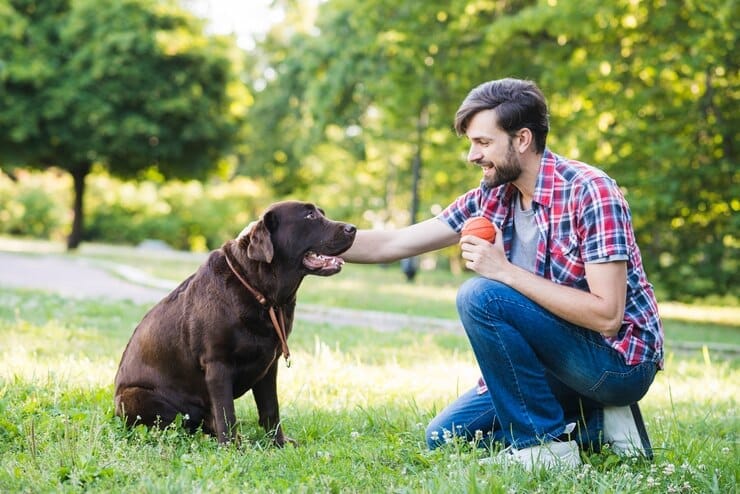Dogs are fascinating creatures that display a wide range of behaviors, some of which can be quite puzzling to their human companions. One such behavior is the tendency to kick back their hind legs after they've finished eliminating. This behavior is common in many dogs, and while it may seem strange to us, it serves an important purpose for our furry friends. So, "Dog Kicks Back Leg After Bathroom:" Let's explore the reasons behind this curious behavior and what it signifies in the canine world.
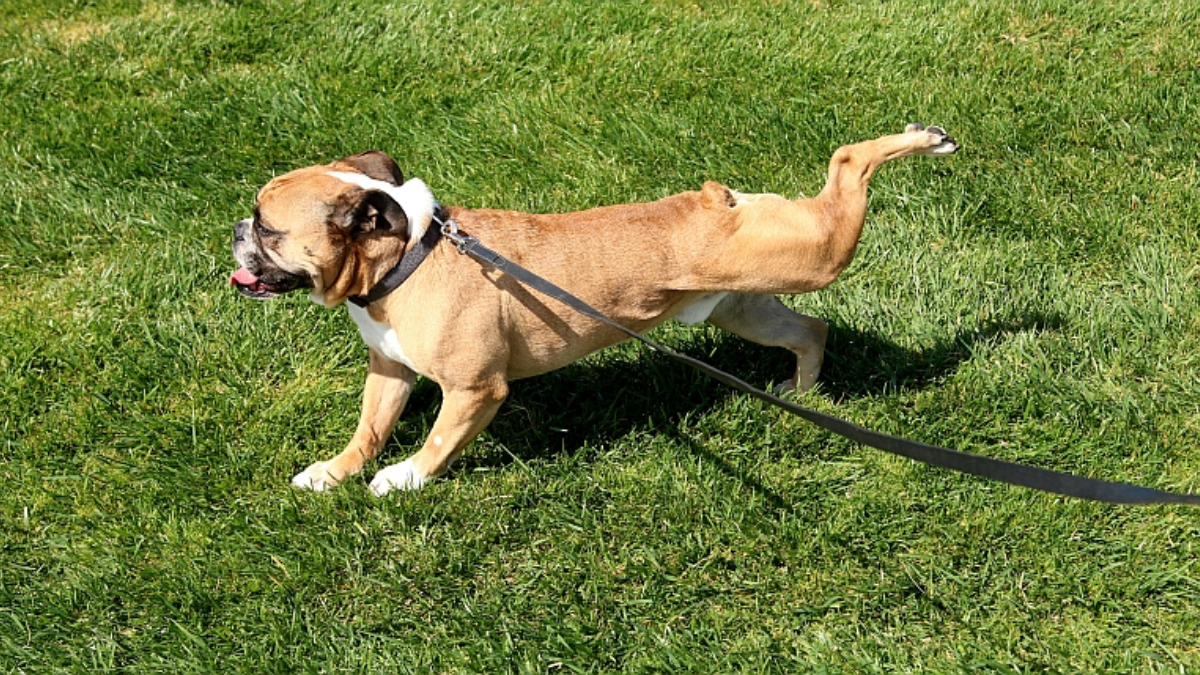
Canine post-elimination behavior is a complex topic that has intrigued dog owners and veterinarians for years. While the kicking behavior is most commonly observed after a dog has urinated or defecated, it can also occur at other times. Some dogs may kick their legs after they've been scratched in a particular spot, while others may do it when they're excited or anxious.
Understanding the reasons behind this behavior is important for dog owners, as it can provide insights into their pet's health and well-being. In this article, we'll explore the various factors that can influence a dog's leg-kicking behavior, including health implications, training and behavioral aspects, and environmental factors. By the end of this article, you'll have a better understanding of why dogs kick their legs after going to the bathroom and what it means for their overall health and happiness.
Key Takeaways
- Dog behavior after elimination is a common phenomenon that serves an important purpose for our furry friends.
- Understanding the reasons behind this behavior can provide insights into a dog's health and well-being, including potential health implications and the impact of training and environmental factors.
- By exploring the various factors that influence canine post-elimination behavior, dog owners can better understand their pet's needs and ensure their overall health and happiness.
Canine Post-Elimination Behavior

Understanding the Kick
Dog owners have likely observed their furry friends kicking their back legs after eliminating waste. This behavior, commonly referred to as the "poop kick," is a natural and instinctual action that dogs perform for a variety of reasons.
One possible reason for the kick is to cover up their waste. Dogs have a strong sense of smell and may be attempting to mask the odor of their feces or urine by using their hind legs to scatter dirt, grass, or other debris over the area.
Biological Reasons
Another reason for the kick may be related to a dog's anatomy. When a dog eliminates waste, their anal glands release a scent that is unique to each dog. Kicking their back legs may help to spread this scent and mark their territory, signaling to other dogs that they have been in the area.
Additionally, the act of kicking can help to stimulate the muscles in a dog's hindquarters, aiding in the elimination process and ensuring that all waste is expelled.
Territorial Marking
Territorial marking is a common behavior among dogs, and the post-elimination kick may be one way that dogs mark their territory. By spreading their scent, they are communicating with other dogs in the area and establishing their presence.
In conclusion, the post-elimination kick is a natural behavior that dogs perform for a variety of reasons, including covering up their waste, stimulating their muscles, and marking their territory. Understanding this behavior can help dog owners better understand their furry friends and provide them with the care and attention they need.
Health Implications of Leg Kicking
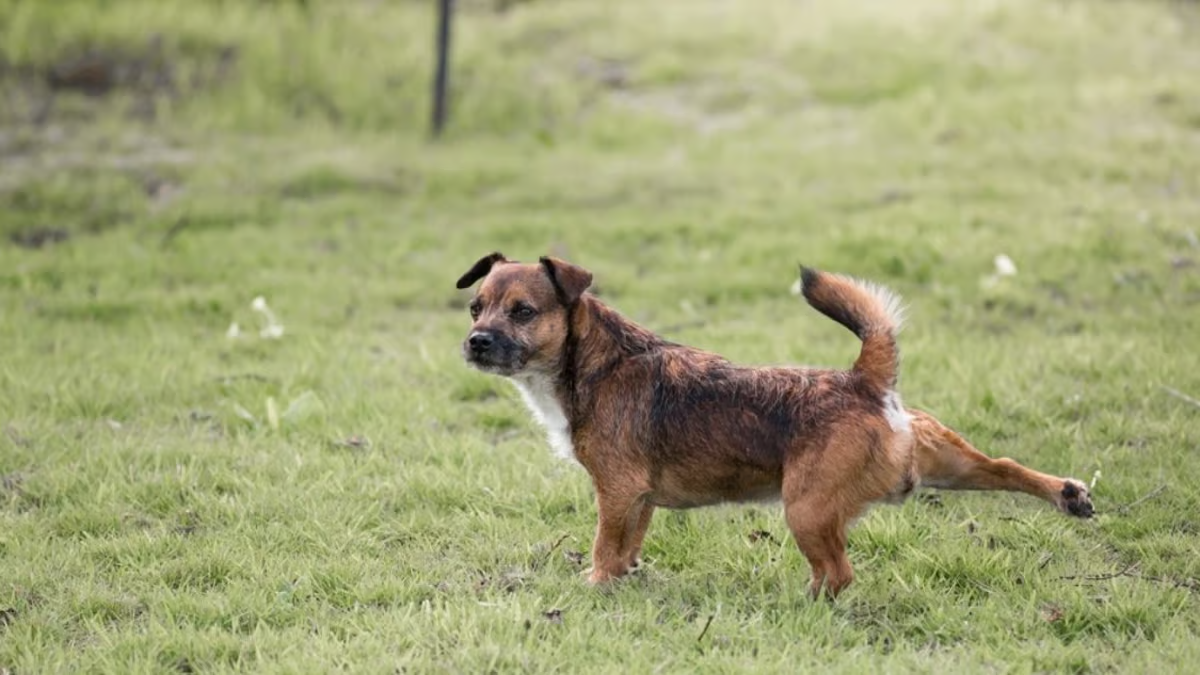
Normal vs. Excessive Kicking
It's normal for dogs to kick their back legs after they've finished doing their business. This behavior is an instinct that helps them spread their scent and mark their territory. However, excessive kicking or scooting can be a sign of an underlying health issue.
Potential Health Concerns
One potential health concern associated with excessive kicking is anal gland problems. The anal glands are small sacs located on either side of a dog's anus. They produce a fluid that helps dogs mark their territory. If the glands become impacted or infected, it can cause discomfort and lead to excessive licking, biting, or scooting.
Another potential health concern is allergies or skin irritation. Dogs with allergies may experience itching or discomfort around their anus, leading to excessive kicking or scooting. Skin irritation or infections can also cause discomfort and lead to excessive kicking or scooting.
:strip_icc()/GettyImages-1193630460-c5b3bd1a604b475e972f129c2fbfad02.jpg)
When to Consult a Veterinarian
If a dog's kicking or scooting behavior becomes excessive or frequent, it's important to consult a veterinarian. A vet can examine the dog and determine if there is an underlying health issue that needs to be addressed. They may recommend treatments such as expressing the anal glands, medication for allergies or skin irritation, or further testing to determine the cause of the behavior.
In summary, while it's normal for dogs to kick their back legs after going to the bathroom, excessive or frequent kicking can be a sign of an underlying health issue. It's important to consult a veterinarian if a dog's kicking behavior becomes excessive or frequent.
Training and Behavioral Aspects
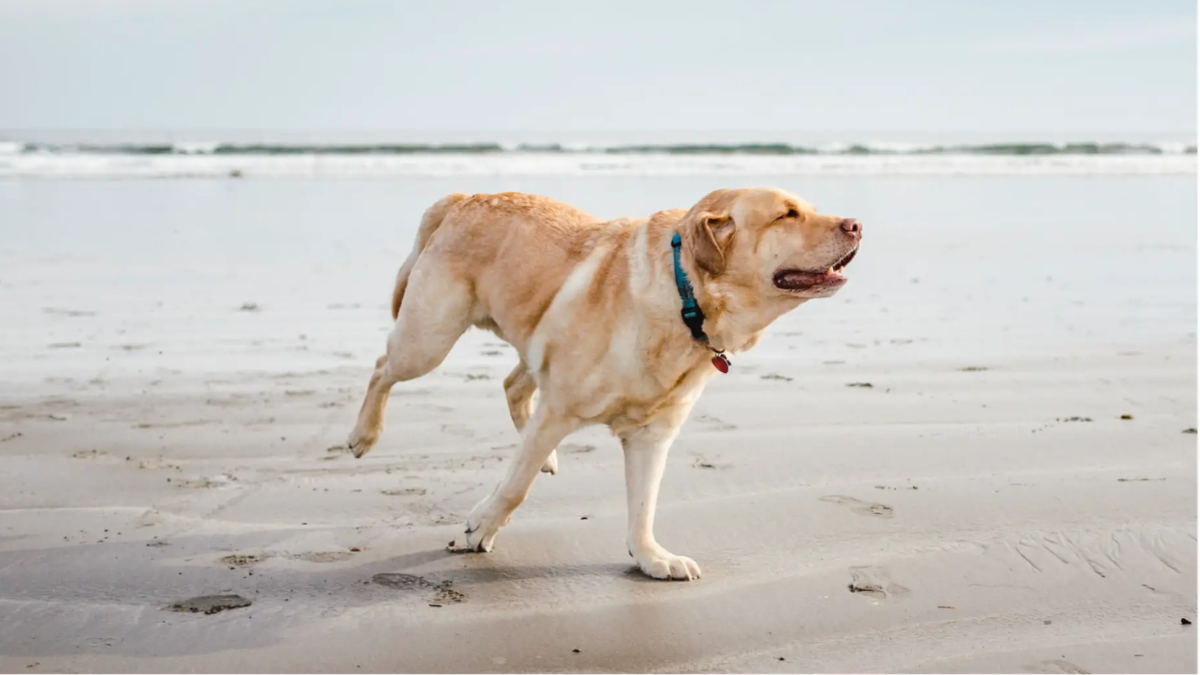
Instinctual Actions
Dogs are known to kick back their legs after going to the bathroom. This behavior is instinctual, and it helps them mark their territory. By kicking up dirt or grass, dogs can leave their scent behind, which can deter other dogs from entering their territory.
Training to Reduce Kicking
While this behavior is natural, it can be frustrating for dog owners who are trying to keep their yards clean. Fortunately, there are a few things that dog owners can do to reduce kicking:
- Training: By training your dog to go to the bathroom in a specific area, you can limit the amount of kicking that occurs. This can be done by taking your dog to the same spot every time they need to go outside. Reward your dog with praise and treats when they go in the designated area.
- Cleaning up promptly: Cleaning up your dog's waste promptly can also reduce the amount of kicking that occurs. When there is no waste to cover up, there is no need for your dog to kick.
- Providing distractions: Providing your dog with distractions while they are outside can also help to reduce kicking. This can be done by giving them toys to play with or by playing with them yourself.
By implementing these strategies, dog owners can reduce the amount of kicking that occurs after their dog goes to the bathroom. It is important to remember that this behavior is natural, so it may take some time and patience to see results.
Environmental Factors Influencing Behavior

Outdoor vs. Indoor Elimination
Dogs have an instinct to mark their territory and eliminate waste. However, whether a dog prefers to be outdoors or indoors can be influenced by environmental factors. Dogs that live in apartments or urban areas may be more accustomed to eliminating indoors on pee pads or in litter boxes, while dogs that live in suburban or rural areas may be more comfortable eliminating outdoors on grass or dirt.
Additionally, dogs may have different preferences for elimination in different environments. For example, some dogs may prefer to eliminate grass or dirt, while others may prefer concrete or pavement. Understanding a dog's preferences can help owners provide appropriate elimination areas and minimize accidents in the home.
Surface Preferences
Dogs may also have preferences for the type of surface they eliminate. Some dogs may prefer soft surfaces, or carpet, while others may prefer hard surfaces, such as concrete or tile. This preference can be influenced by a dog's breed, age, or past experiences.
Owners can help their dogs feel more comfortable during elimination by providing appropriate surfaces. For example, if a dog prefers to eliminate grass, providing a designated potty area with grass or a grass-like surface can help encourage them to eliminate it in the appropriate area. Similarly, if a dog prefers to eliminate a hard surface, providing a designated area with concrete or tile can help prevent accidents in the home.
Understanding a dog's environmental preferences can help owners provide appropriate elimination areas and minimize accidents in the home. By providing a comfortable and appropriate environment for elimination, owners can help their dogs feel more secure and reduce stress and anxiety.
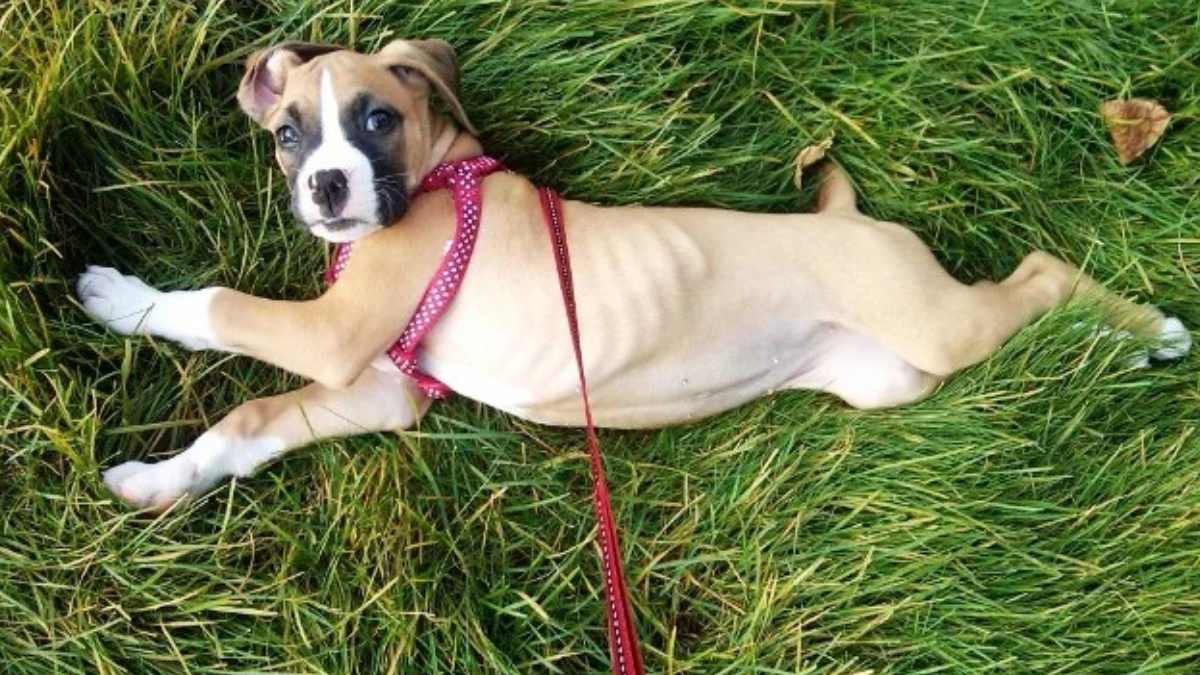
Conclusion:
In conclusion, the behavior of dogs kicking back their hind legs after using the bathroom, known as "Dog Kicks Back Leg After Bathroom," is a fascinating aspect of canine behavior. While it may appear peculiar to us, it actually serves several important purposes for our furry companions. One primary function is scent marking, as dogs have scent glands in their paw pads, and kicking back their legs helps spread their scent and communicate with other dogs. Additionally, this behavior may also serve as a way for dogs to clean their paws or maintain their territory by covering their waste. Understanding why dogs engage in this behavior can provide valuable insights into their natural instincts and communication methods.
Furthermore, observing this behavior can also be a useful indicator of your dog's overall health and well-being. If your dog suddenly stops kicking back their legs after using the bathroom, it could be a sign of discomfort or pain, prompting further investigation and potential veterinary attention.
Overall, while the behavior of dogs kicking back their leg after using the bathroom may seem quirky, it's an integral part of their instinctual behavior and communication. Embracing and understanding these unique behaviors strengthens the bond between humans and their canine companions, fostering a deeper connection and mutual understanding.
Frequently Asked Questions
- Why does my dog scrape the ground after going to the bathroom?
- Dogs have scent glands in their paws, and when they scrape the ground after going to the bathroom, they leave their scent behind. This is a natural behavior that helps them mark their territory and communicate with other dogs.
- What causes dogs to kick their legs after defecating?
- When dogs kick their legs after defecating, it is a reflexive action that helps them clean themselves. This behavior is more common in female dogs than in male dogs, but both genders can exhibit it.
- How can I discourage my dog from kicking up grass following bathroom use?
- While it may be difficult to eliminate this behavior, you can try distracting your dog with a toy or treat after they finish going to the bathroom. You can also try training them to "leave it" or "come" after they finish eliminating.
- Is it normal for all breeds of dogs to kick after eliminating them?
- Yes, it is normal for all breeds of dogs to kick after eliminating. However, some breeds may exhibit this behavior more frequently than others.
- What does it signify when a dog kicks out with its hind legs while lying down?
- When a dog kicks out with its hind legs while lying down, it is usually a sign of pleasure or excitement. This behavior is often seen when a dog is being petted or scratched in a particularly enjoyable spot.
- Why do dogs sometimes run or exhibit excitement after pooping?
- This behavior is often referred to as the "poop zoomies." It is believed to be a release of pent-up energy and excitement after the dog has finished eliminating. It is a normal behavior and nothing to be concerned about.
